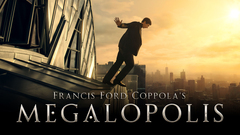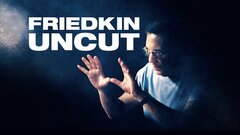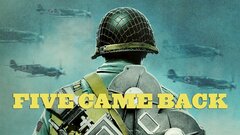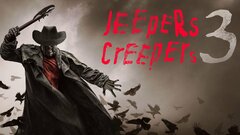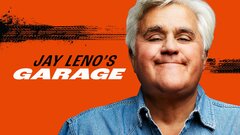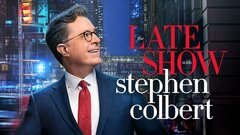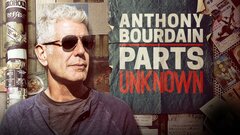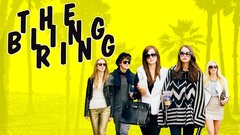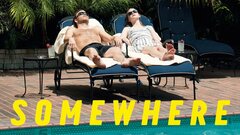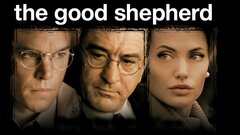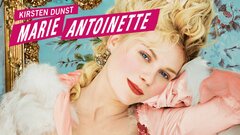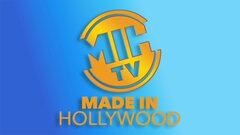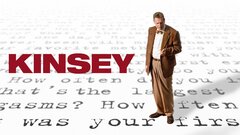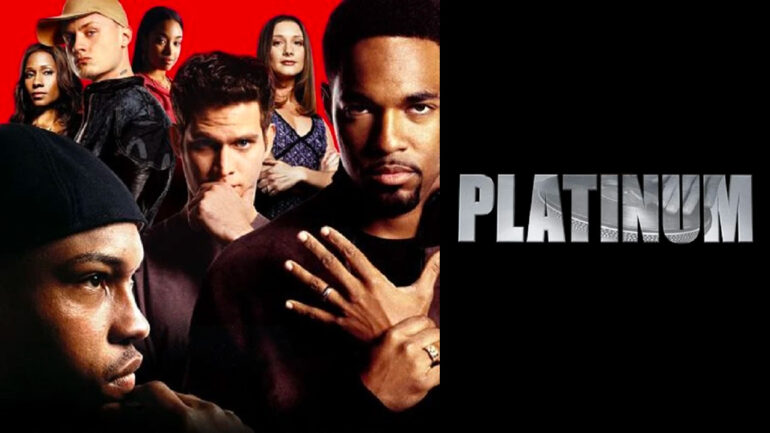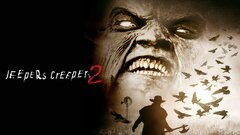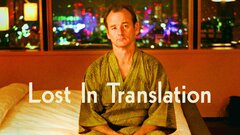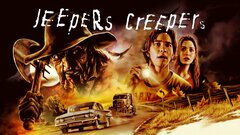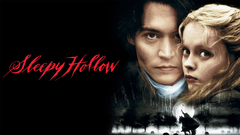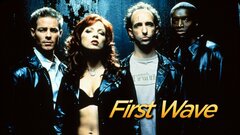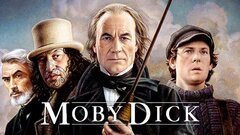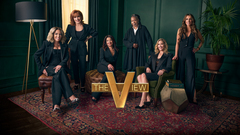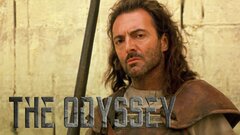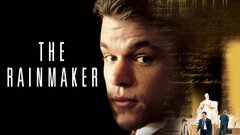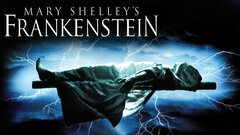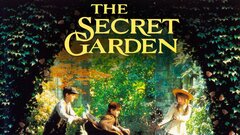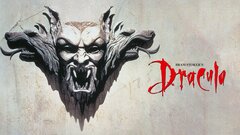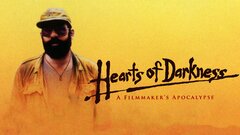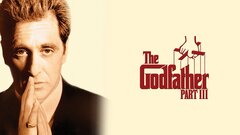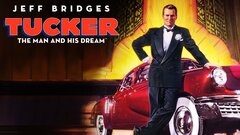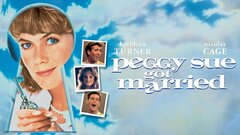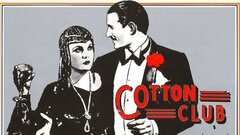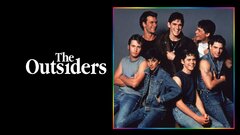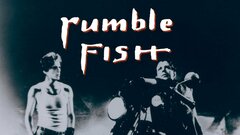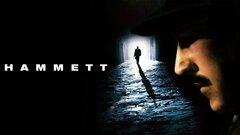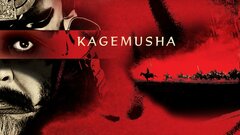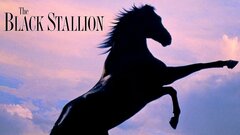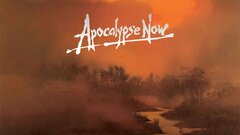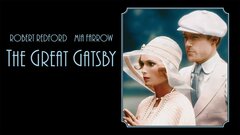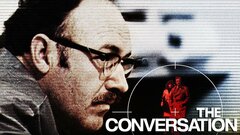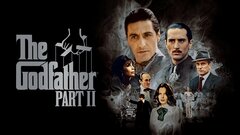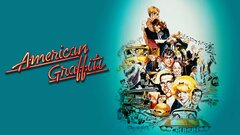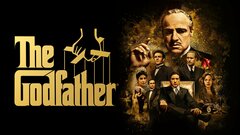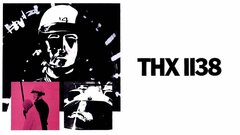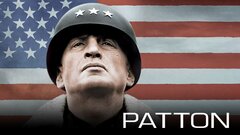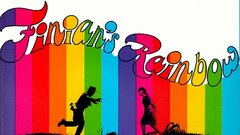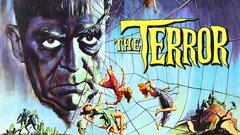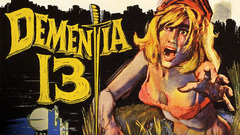One of America's most erratic, energetic and controversial filmmakers, Francis Ford Coppola enjoyed stunning triumphs and endured monumental setbacks before resurrecting himself, Phoenix-like, to begin the process all over again. Known primarily for his successful "Godfather" trilogy - "The Godfather" (1972), "The Godfather, Part II" (1974) and "The Godfather, Part III" (1990) - Coppola was the most celebrated of the Young Turks - a group of filmmakers who emerged in the early 1970s that included George Lucas, Steven Spielberg, Martin Scorsese, Brian De Palma and William Friedkin.
Unbridled by his ambition and enthusiasm, and perhaps obsessive to the point of being manic, Coppola infused a fervent creative energy into his early work, culminating in "Apocalypse Now" (1979), a journey into his own heart of darkness that irrevocably altered his career and may have even caused permanent psychological damage. Renowned for his generosity with other filmmakers, Coppola served as a fierce promoter of others' films, championing the work of Wim Wenders, Paul Schrader and Akira Kurosawa, while playing an important part in the restoration of Abel Gance's classic silent film, "Napoleon" (1927). The quality of his directing fell off throughout the 1980s and 1990s, however, and the big studios - remembering his colossal box-office failures - became leery of backing his more personal projects, preferring instead to employ him as a hired gun on the likes of "Bram Stoker's Dracula" (1992) and "The Rainmaker" (1997), which helped the director pay off his enormous debts.
Nonetheless, Coppola - having been responsible for directing three of the greatest films in cinema history - remained forever a legend.
Born on Apr. 7, 1939 in Detroit, MI, Coppola was raised in a creative, supportive Italian-American family. His father, Carmine, was a flutist and composer who played in several orchestras, including Toscanini's NBC Symphony Orchestra, which he often conducted when on tour, while his mother, Italia, was an actress. Because of Carmine's tenure with Toscanini, Coppola moved with his family to New York City when he was two and spent the remainder of his childhood growing up in Queens.
When he was nine years old, Coppola suffered from polio, which kept him confined to his bed for a year, with his left leg and arm paralyzed. Separated from his friends, Coppola occupied himself with puppets and mechanical devices, which intensified an already developing fascination with film. At age 10, he began making movies with his father's 8mm camera and tape recorder. After graduating Great Neck High School, he pursued a bachelor's degree in drama at Hofstra University, alongside actors Lainie Kazan and James Caan.
Once he wrapped his student career at Hofstra, Coppola attended the University of California at Los Angeles, where he brushed elbows with future Doors singer Jim Morrison and earned his Master of Fine Arts in film direction from UCLA Film School.
Coppola spent the better part of the 1960s trying to obtain his degree, thanks to his general discontent with the classroom. He gained some real-world experience directing soft-core porn films like "Tonight For Sure" (1962), then hired himself out to low-budget king Roger Corman. His first job for Corman was to dub and re-edit a Russian science fiction film, which he turned into a sex-and-violence monster movie entitled "Battle Beyond the Stars" (1962). Coppola directed his first feature, the unremarkable Corman-produced "Dementia 13" (1963), while in Ireland that summer.
Then on the strength of his Samuel Goldwyn award-winning UCLA screenplay "Pilma Pilma," he secured a job as a scriptwriter with Seven Arts. Coppola made significant contributions to "Is Paris Burning?" (1966) and "This Property is Condemned" (1966); eventually winning his first Oscar for co-writing Franklin Schaffner's war epic, "Patton" (1970). Frustrated at not seeing his vision on the big screen, however, Coppola bought the rights to a David Benedictus novel and fused it with a story idea of his own, resulting in "You're a Big Boy Now" (1966), his UCLA thesis project that also received a theatrical release via Warner Bros. Critics praised the funny and fast-paced film about a young, naïve suburban man (Peter Kastner) moving to the big city, as well as applauded the appearance of a new director of great talent and promise. Unfortunately, the film failed at the box office.
An unbowed Coppola agreed to direct a screen version of "Finian's Rainbow" (1968), a musical starring Fred Astaire. Though the movie bombed on release - the studio blew it up from 35mm to 70mm, effectively chopping off Astaire's feet - it did introduce him to a young George Lucas, who went on to work as a production assistant on Coppola's next effort, "The Rain People" (1969). Written, directed and financed by Coppola - until his money ran out and the studio had to help out - the film starred Shirley Knight as a distressed housewife who takes to the road, and along the way, befriends the brain-damaged football player (James Caan).
In 1969, an idealistic Coppola sought to subvert the studio system which he felt had stifled his visions by launching American Zoetrope as an alternative to the way movies were then made. The company intended to produce mainstream pictures to finance off-beat projects and give first-time directors their chance to direct. But when Warner Bros. so disliked Zoetrope's initial offering, Lucas' futuristic "THX-1138" (1971), that they demanded their money back, Coppola found himself $300,000 in debt and unsure of his future as a filmmaker - a small sign of bigger financial calamities to come.
With "The Godfather," however, everything changed, but only after Coppola fought tooth and nail for the cast of his choice - namely Marlon Brando - and narrowly avoided dismissal by a skittish Paramount brass who feared the young director was in over his head. Thanks to the ever-faithful producer Bob Evans and a timely Oscar for "Patton," Coppola survived to bring his monumental epic to the screen, earning his second Oscar for the screenplay he co-wrote with Mario Puzo, author of the bestselling novel the film was based on.
One of the highest-grossing films in cinema history, "The Godfather" captured the country's imagination by skirting the traditional gangster territory and reinventing itself both as a family chronicle and a lyrical epic of almost Shakespearean proportions. Capturing the transition of leadership inside a New York Mafia family after its patriarch (Brando) has been shot, Coppola used his manic creative energy to pull out all the stops in directing what many consider to be the greatest film of all time. Aside from the stunning visual feast - from the opening wedding contrasted by the dark interior of the Don holding court, to the final bloody montage of murder seen against the backdrop of baptism - "The Godfather" was elevated beyond the mere pulp of its paperback origins into the realm of true art.
Meanwhile, the film helped resurrect Brando's career while introducing audiences to James Caan, Al Pacino, Robert Duvall, Coppola's sister, Talia Shire, and a young Diane Keaton. On top of earning an Oscar for Best Picture, "The Godfather" helped usher in the era of the blockbuster, making Coppola a wealthy man and propelling forward his stagnating career.
Coppola's "Godfather" success did almost as much for his filmmaking friends as it did for the generous director, himself. He launched George Lucas' career by producing the early-1960s nostalgia flick, "American Graffiti" (1973) and, following work on the screenplay for "The Great Gatsby" (1974), directed "The Conversation" (1974), based on his own script about a lonely surveillance expert (Gene Hackman) whose obsessive eavesdropping leads to tragedy. The film, which brought Coppola two Oscar nominations and won the Palme d'Or at Cannes, featured the high-tech gadgetry that fascinated him in his youth and later throughout his career. The real star turned out to be sound designer Walter Murch who, besides providing the superb soundtrack, also ran post-production when the director had to abandon the project to work on "Godfather II" (1974).
Coppola again co-wrote with Puzo on the hugely successful sequel, which won six Oscars, including three for Coppola as producer, director and writer. "Godfather II" daringly intercut the story of the rise to power of Vito Corleone (Robert De Niro), a prelude to the first film, with the parallel contrasting story of his son Michael's (Pacino) fall from grace 30 years later. Both parts of "The Godfather" were later recut in chronological sequence for a TV miniseries. Such was the incredible success of the sequel, many felt it was the superior film of the two.
By the end of 1975, Coppola had begun work on "Apocalypse Now" (1979) - a version of Joseph Conrad's Heart of Darkness superimposed onto the Vietnam War. Fellow UCLA student John Milius had written the original script years earlier under Coppola's sponsorship, with George Lucas poised to direct before Coppola assumed control. The film tracked a military operative (Martin Sheen) traveling up a Cambodian river in search of the legendary Colonel Kurtz (Marlon Brando), who has established a bizarre empire of tribal followers deep in the jungle.
Perhaps the most storied film production in cinema history, everything that could go wrong did go wrong. Disappointed with the dailies, Coppola replaced original leading actor Harvey Keitel with Martin Sheen after shooting began, who not long after, suffered a nervous breakdown - captured on film and edited into the opening sequence - which was followed by a heart attack that delayed production. Nature herself even entered the act with Typhoon Olga wreaking havoc on set.
Meanwhile, Coppola's personal journey into his own heart of darkness mirrored the story he was filming. The cost overrun was staggering, forcing Coppola to mortgage everything he owned to cover some $16 million of the $30 million budget. His wife, Eleanor, who had gone to the Philippines to make a documentary about this process, wrote of her husband in a March 1977 entry in her diary: "I guess he has had a sort of nervous breakdown." Coppola has remarked of the experience that "little by little, we went crazy," while he later cited that he began smoking cigarettes and marijuana as a means of coping
After many months of difficult jungle shooting and strenuous editing, the long-awaited production enjoyed an emotional premiere at the Cannes Film Festival, where it won the Palme d'Or. Parts of the movie - like the helicopters attacking to the bombast of Richard Wagner's "The Ride of the Valkyries" - were sheer genius, and despite its difficult ending, "Apocalypse Now" was undeniably a visually breathtaking and ultimately flawed masterpiece, while becoming a modest hit at the box office and winning two Oscars. Once again, Coppola was saved from financial ruin. But this film in particular took its toll on the director, perhaps doing irreparable damage to his psyche and permanently undermining his confidence.
Apocalypse Now" marked the end of Coppola's golden period. What followed in the new decade was a succession of box-office disappointments, often as a result of his undeniable megalomania. The $26 million production of the movie musical "One From the Heart" (1982) was a major financial and critical bomb, due largely to Coppola's preoccupation with costly high-tech gadgets and experimental computer and video techniques at the expense of storytelling. "One from the Heart" brought him to the brink of personal and business bankruptcy, and he would spend the rest of the decade working to pay his debts. (Zoetrope Studios finally filed for Chapter 11 bankruptcy in 1990).
In 1983, Coppola directed two adaptations of teenage-themed novels by S.E. Hinton, "The Outsiders" and "Rumble Fish," both of which were criticized as overly-stylized and lacking in strong narrative impact. Both also lost money. Nevertheless, they captured the writer's world, as Coppola had intended, and provided screen introductions for an astonishing number of young actors who would, within a few years, dominate Hollywood, including Matt Dillon, Mickey Rourke, Nicolas Cage, C. Thomas Howell, Ralph Macchio, Patrick Swayze, Rob Lowe, Emilio Estevez, Tom Cruise, Christopher Penn and Diane Lane.
Coppola's run of bad luck continued with "The Cotton Club" (1984), an ambitious musical set in the famous Harlem jazz club of the 1920s. Despite putting the script through nearly 40 drafts before the trouble-plagued production began, Coppola was hamstrung by the predetermined character of white cornetist Dixie Dwyer (dictated by Richard Gere's contract), which led to an improbable and incoherent story. Coupled with that problem was Coppola's unmitigated fascination with huge state-of-the-art production methods that ballooned costs to $48 million and had him spending most of his time in his customized high-tech trailer - the 'Silverfish' - surrounded by cameras, monitors, consoles and computers. It was a pure recipe for disaster. Still, he continued his love affair with technology for his television directing debut, "Rip Van Winkle" (Showtime, 1985), crafting many of the fantastic scenes with computer imaging systems.
Coppola next helmed the light time-travel comedy, "Peggy Sue Got Married" (1986), and though it suffered for its inevitable comparisons to "Back to the Future" (1985), it managed a respectable box office. In spite of a weak script, Coppola constructed the tale around a series of poignant encounters; the most powerful - like when Peggy sees her grandparents as they were 25 years earlier - causing the audience to choke-up right along with the time-traveling heroine. A high school student himself in the 1950s, Coppola effectively conveyed an authentic look and feel for the period. The film solidified Kathleen Turner's reputation as an A-list actress and made a star of Coppola's nephew, Nicolas Cage, although some thought him grating in his turn as Peggy Sue's husband. An aura of tragedy surrounded "Gardens of Stone" (1987), a well-acted Vietnam War-era drama played out on the home front, which pleased some critics, but not audiences. During its filming, Coppola's eldest son Gian-Carlo was accidentally killed in a boating accident, due to the negligence of actor and star of "Gardens," Griffin O'Neal, who was later charged with manslaughter for driving the boat recklessly and under the influence of drugs. After replacing O'Neal, Coppola managed to finish the film, albeit with a heavy heart.
The far more impressive "Tucker: The Man and His Dream" (1988) starred Jeff Bridges in the role of the real-life 1940s auto-industry visionary. Coppola had been planning to make this film since the early 1970s, when he had become fascinated with the story of Preston Tucker, the brash but intelligent entrepreneur who dared to challenge the Detroit establishment. The story was not without parallels to Coppola's own career in Hollywood, but more importantly, "Tucker" focused attention on entrepreneurship and innovation at a time in American history when those qualities were sorely lacking. Like "Peggy Sue," "Tucker" also revealed a striking sense of period. Because Coppola used the cinematic conventions of the 1940s to capture the look and feel of the time, "Tucker" was as much about his own memory of the period as it was about the period itself.
Coppola was working in Rome when the opportunity arose to direct "Godfather III" (1990). In desperate need of a hit, Coppola acceded to Paramount chairman Frank Mancuso's pleas for a third installment in the series. Bargaining for full artistic control over the project, he began what would become a $55 million rumor-bound production in November 1989, reuniting screenwriters Coppola and Puzo, as well as stars Pacino, Keaton and Shire. Coppola's decision to cast daughter Sofia in a pivotal role after Winona Ryder withdrew due to illness backfired miserably, turning a pivotal role into an industry laughingstock. His daughter's failure to capture the part was widely cited as one of the film's worst flaws - leading to cries of nepotism. Studio pressure to meet a December release terminated the editing process prematurely, leaving essentially an unfinished product that seemed aimless and uncertain.
A revised "Godfather III" was later made available in the DVD version. Though it remained nowhere near as good as the first two parts, it was far superior to the original theatrical release, thanks to Walter Murch's additional editing. Autumnal, sad, and full of confessions, "The Godfather III" was one of Coppola's most candid films and better than originally believed.
Throughout Coppola's career, shaky business ventures magnified the problems of his box-office flops. In the 1960s, he had poured profits from screenwriting into an ill-fated venture called Scopitone, a precursor of music videos, which showed short movies on a juke box, while the 1970s saw him quickly lose $1.5 million on the San Francisco-based City Magazine during his stewardship. Though the bankruptcy of American Zoetrope signaled his ultimate failure to establish himself independent of the Hollywood power structure, the success of a few mid-'90s films restored Coppola's fortune and subsequent investments later thrived. He bought Blancaneaux, a 50-acre property on the banks of the Privassion River in Belize and began operating it as a luxury hotel in 1993. The following year, he opened - along with partners Robert De Niro, Robin Williams and restaurateur Drew Nieporent - Rubicon, a San Francisco restaurant. Coppola paid $10 million in 1995 to purchase the balance of the old Inglenook wine-producing property, completing his dream estate and expanding his wine company, Niebaum-Coppola. He later offered a food line, "Francis Coppola Selects," reflecting his love of cooking that featured olive oils, vinegars and sun-dried tomatoes.
It would be his growing wine business, in fact, that would keep his name alive, as his nineties film offerings were mostly forgettable, with Coppola more or less a director for hire. He did, however, score a huge success at the helm of "Bram Stoker's Dracula" (1992) with the help of a stunning production design (Thomas Sanders), superb cinematography (Michael Ballhaus) and chilling music (Wojciech Kilar). A sumptuous visual extravaganza that more than compensated for lapses in the story, the film grossed $200 million worldwide and carried home Oscars for makeup, sound effects editing and costume design.
His nine-year-old granddaughter's request that he make something for kids influenced his next directorial choice. "Jack" (1996) starred Robin Williams as a 10-year-old child with a disorder that caused him to grow four times faster than normal and to have the appearance of a 40-year-old man. The fable, a kind of "Peggy Sue Got Married" premise dealing with Jack's diminished life expectancy, appealed to Coppola for its parallel to his son Gian-Carlo's tragically short but full life. Regrettably, the movie failed to resonate with audiences and pulled up lame at the box office. He picked a proven winner as his next project, scripting and helming the film adaptation of "John Grisham's 'The Rainmaker'" (1997), one of the best of the Grisham adaptations, but one that still lacked the fire and inspiration of Coppola's finer works. After "The Rainmaker," Coppola took nearly a decade off, before returning with "Youth Without Youth" (2007), a low-budget thriller about a fugitive (Tim Roth) fleeing across Europe before the onset of World War II. He then helmed "Tetro" (2009), a drama centered on an artistic immigrant family in Buenos Aires.


